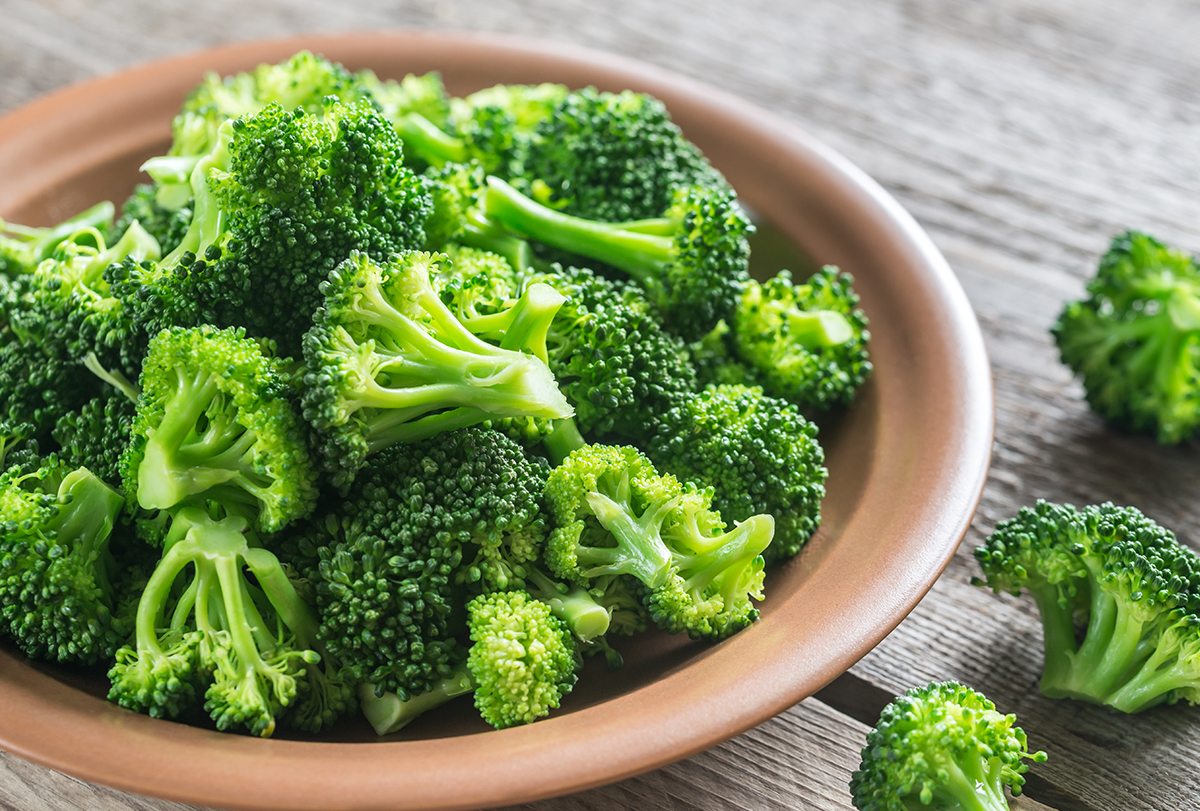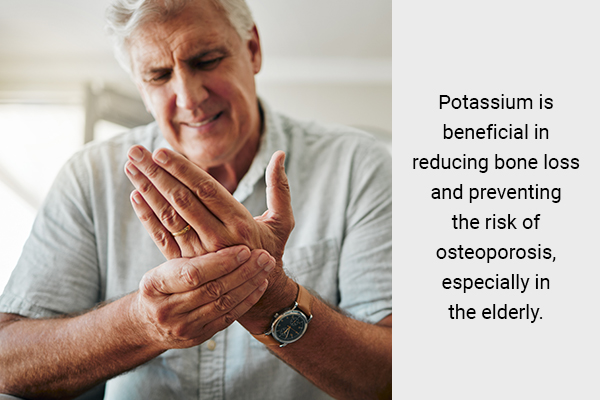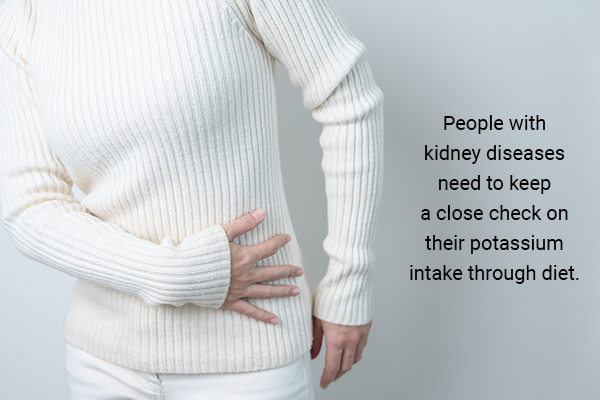In this article:
Potassium is an important electrolyte that works alongside sodium to maintain fluid balance in the body. It ensures that the cells and blood have a balanced amount of fluid. (1)

Potassium is primarily obtained via food, mainly fruits and vegetables, and has benefits in a variety of disease conditions, such as kidney diseases.
Cruciferous vegetables such as broccoli are often touted as rich sources of potassium; however, that might not be the case. Broccoli contains 316 mg of potassium per 100 g serving, which only contributes to 7% of the recommended daily intake. (2)
According to the Food and Drug Administration, a food can only be considered a “good source of potassium” if it contains >10% of the recommended daily intake or 350 mg of potassium per reference amount of the food. (3)
It can be concluded that broccoli is not high in potassium but can be considered a moderately rich source of the mineral.
Expert Tip: Increasing the Potassium Content of a Broccoli Meal
Broccoli can be cooked alongside other high-potassium foods to increase the amount of potassium you consume via the meal. Some foods you can make use of are: (1)
- Cooked lentils (contains 755 mg in 1 cup)
- Baked potato (contains 610 mg in a medium potato)
- Canned kidney beans (contains 607 mg in 1 cup)
Role of Potassium in the Body
Apart from maintaining fluid balance in the body, potassium also plays these roles in improving health.
1. Reduces the risk of hypertension and stroke
Potassium is commonly famed for its role in reducing blood pressure, especially in people with elevated blood pressure.
Multiple studies have proven that supplementing with potassium in a dose-dependent manner can significantly lower elevated blood pressure levels. This means the higher the potassium dose, the more its capacity to reduce blood pressure in patients with hypertension. (4)
Even a dose as mild as 4.7 g through food sources resulted in an 8.0/4.1 mmHg reduction in blood pressure. This reduction in blood pressure not only improves outcomes of hypertension but also reduces the risk of complications such as stroke and heart attack. (4)
Potassium works by increasing the clearance of sodium in the body via the urine. It also eases the tension on the muscles of the blood vessels, relaxing them, which in turn helps decrease blood pressure. (5)
2. Reduces the risk of kidney stone formation
Calcium oxalate stones are the most common of all kidney stones. It occurs when calcium through dietary sources is not absorbed by the body and instead is excreted via the urine. This calcium can accumulate and combines with oxalate (from high-oxalate foods), forming kidney stones.
According to studies, potassium supplementation – particularly potassium citrate – can decrease the risk of stone formation.
Potassium citrate binds to calcium in the intestine and increases its absorption so that it isn’t extracted via the urine. It also binds to calcium in the urine and prevents it from attaching to oxalate. (6)
Potassium citrate is also useful in preventing uric acid stones as it solubilizes excessive uric acid and prevents its concentration in the urine.
The recommended dose of potassium citrate is 30–40 mEq/day, or your physician may prescribe an ideal dose for you. (7)
3. Improves bone health

Potassium is also beneficial in reducing bone loss and preventing the risk of osteoporosis, especially in the elderly. Potassium through food sources can prevent the loss of calcium from the bone and prevents calcium losses via urine. (8)
Studies have found daily potassium intake to reduce the risk of osteoporosis in postmenopausal women who are at the most risk of developing weak bones. This same result was not observed in men. (8)
You can discuss with your doctor to identify your ideal potassium dose.
4. Can help with the management of blood sugar levels
Low potassium in the body, a condition known as hypokalemia, is linked to a higher likelihood of developing diabetes. Studies have reported that in participants with a low serum potassium level, there was an increased level of fasting blood sugar and vice versa. (9)
Recommended Daily Intake and Food Sources
The recommended intake of potassium is 3,400 mg/day for men and 2,600 mg/day for women. It increases to 2,900 mg/day during pregnancy and 2,800 mg/day for lactating women. (1)
Some high sources of dietary potassium include dried apricots, lentils, prunes, raisins, bananas, milk, spinach, and fortified cereals. (1)
Who Should Avoid High-Potassium Foods
Potassium is generally safe for healthy individuals as the body excretes excess potassium via urine. However, people with chronic kidney disease, those taking medications for blood pressure, or those with liver disease need to restrict their potassium intake. (1)
A dietitian and doctor will be able to identify the amended daily intake based on your health condition.
Practical Takeaways

- Broccoli is considered a moderately rich source of potassium. You can add cooked lentils, one medium baked potato, or canned kidney beans to a meal made from broccoli to increase its potassium content.
- Potassium is an important electrolyte that not only helps in maintaining fluid balance in the cells of the body and blood, but also it is useful in reducing hypertension and risk of strokes, preventing loss of bone and therefore reducing the risk of osteoporosis, and improving blood sugar balance and reducing the likelihood of developing type 2 diabetes.
- Consume foods such as prunes, dried apricots, nuts, lentils, raisins, bananas, and milk to obtain potassium from dietary sources.
- People with kidney diseases need to keep a close check on their potassium intake through diet.
- Was this article helpful?
- YES, THANKS!NOT REALLY


